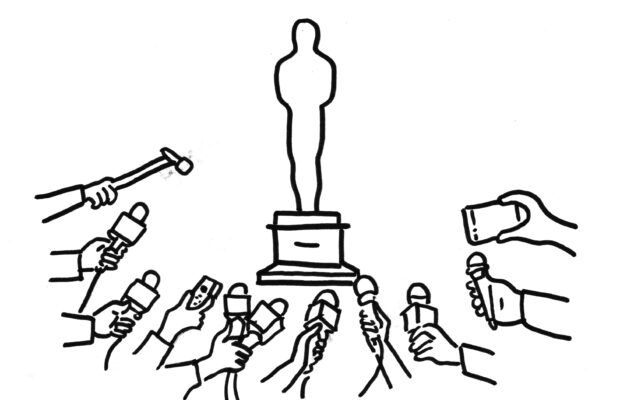Hollywood drama distracts us from reality

As a teenage girl living on the outskirts of L.A., I have always had a front row seat to the shimmering bubble of Hollywood. Universal Studios was my go-to summer amusement park and I grew up in awe of the art of film and movie sets. Behind the scenes glimpses of my favorite childhood shows and actor interviews made me feel part of the world myself, and I cared far more about my favorite celebrities than my parents’ political heroes. But as these people I looked up to began to disappoint me time and time again, I realized that the problem was not the celebrities themselves; it was the fictional characters that I had created of them in my mind. And that person was flashing wealth and luxury in my face, blinding my vision from the world’s harsh realities.
The reality check that snapped me from my admiration of Hollywood was the recent drama surrounding the movie “It Ends With Us,” and the alleged tension between cast members Blake Lively and Justin Baldoni. The drama of this movie took the internet by storm, and every other piece of media I saw on my feed was of people intensely analyzing and decrypting every action and comment the stars made. As a student journalist, what unsettled me was seeing this celebrity gossip labeled as news. From the New York Times to every-day Instagram reels, the drama in Hollywood had taken over my feed; and it felt as if I saw just as much news on the Blake Lively-Justin Baldoni drama as I did on Harris and Trump during one of our nation’s most controversial elections.
As I began to study the patterns of Hollywood, I could not help but make parallels to “The Hunger Games.” While the thought of comparing our beloved film stars to any aspect of one of the most terrifying yet fascinating dystopian worlds created seems harsh, the values both societies hold dear to their hearts cannot go without comparison. The similarities became the most difficult to ignore when a group of protestors headed towards one of the most luxurious events for elites, one that lets others know they can look but not touch. While pro-Palestinian protestors headed towards the Met Gala, fighting for their families and demanding action, they were not just protesting the war. They were also protesting the economic disparities between the elites and those who serve them. They were protesting society’s idolization of celebrities over normal humans.
When I look back on what made me admire Hollywood in the first place, I still get chills when I think about the brilliance of my favorite Steven Spielberg movies or the first time I watched the “Harry Potter” or “Back to the Future” franchises. The comfort of my favorite characters paired with the swelling music and nostalgic sets never fails to move me in ways in which the real world cannot compete. My admiration for the art of Hollywood has never faded. What has grown, instead, is my understanding of why we need to separate celebrities from the characters we adore, and glance up from time to time from the fictional worlds we love most.
As William Shakespeare once said, “all that glitters is not gold.” If we know Hollywood is a flashy show designed to distract us from reality, do we continue feeding into it because we like this distraction, or is it because we want that gold for ourselves?



